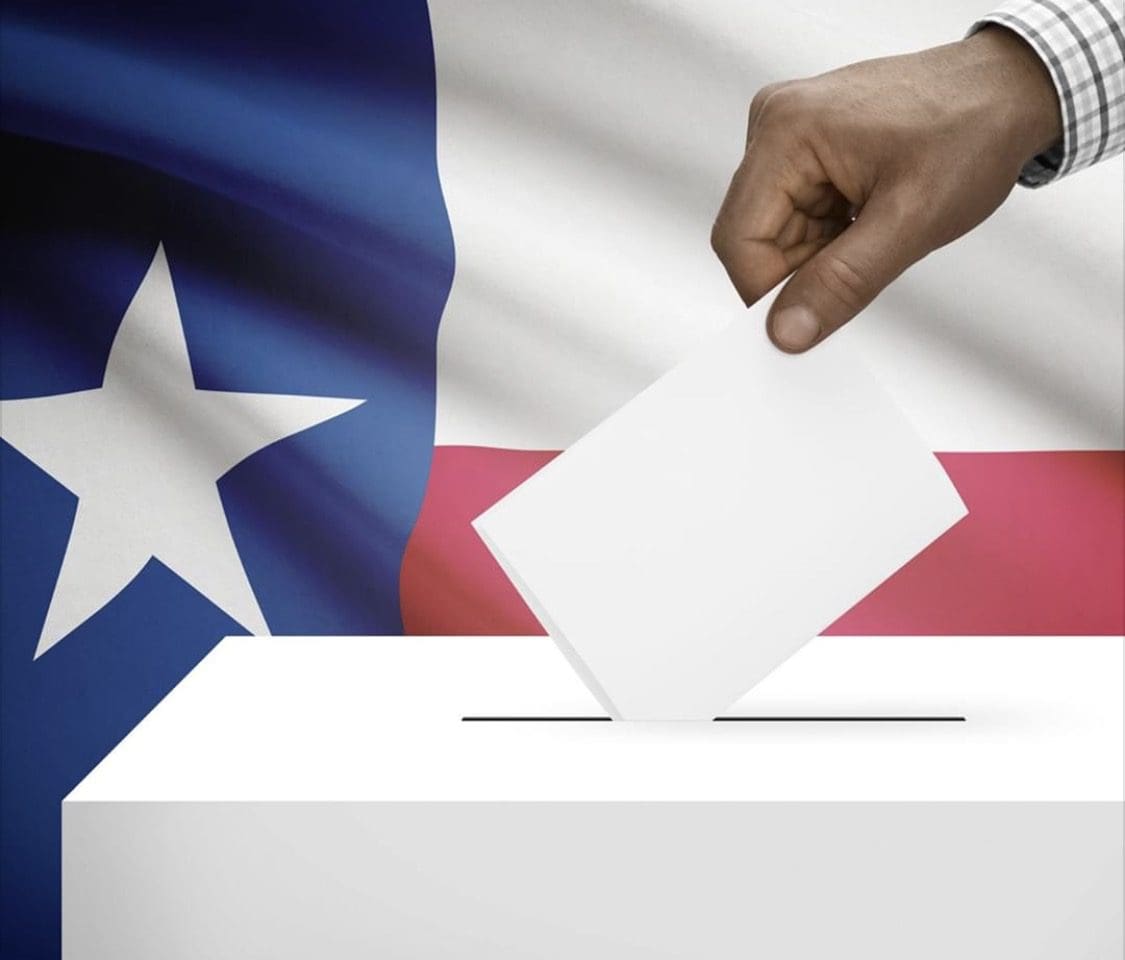Following the results of the March 1 Republican primary election, candidates Andy Hopper in House District 64 and Tom Glass in House District 17 initiated ballot recounts in their districts.
Hopper was running against incumbent State Rep. Lynn Stucky (R–Sanger), and Glass was running for an open seat alongside Bastrop Judge Paul Pape, former Rick Perry staffer Stan Gerdes, and businesswoman Jen Bezner. Hopper lost to Stucky, and Glass came in third behind Pape and Gerdes, who are headed to a May 24 runoff election.
On Thursday, both recounts were completed.
House District 64 Results
The numbers reported by the ballot machines on election night were largely confirmed.
Volunteers hand-tallied the 9,717 votes in the district, which is contained within Denton County. The biggest changes involved the assignment of voter intent to several overvotes—a ballot where a voter marked for both candidates in the race.
There had been a discrepancy of 160 votes between the numbers reported by Denton County and the Texas Secretary of State. That caused concerns that the Denton County tally might have overcounted votes.
“We would like to thank and congratulate the dozens of workers and volunteers from across the district that gave up their day for the cause of election integrity. We would also like to thank Denton County Elections for their professionalism,” said Hopper.
Although it remains unclear why the secretary of state and Denton County reported differing numbers, the paper ballots in Denton proved all votes were accounted for.
House District 17 Results
HD 17 encompasses five counties, and Tom Glass initiated recounts in four counties—the ones with paper ballot backups. Although the results did not change substantively, the HD 17 recount did find changes in three of the four counties.
Caldwell County had mistakenly double-counted 60-80 votes from four early voting locations. The reconciliation report, which is meant to catch errors like this, was improperly completed and the double-count went unnoticed until the paper ballot recount.
“The most significant benefit from the recount was that we have uncovered the need for either better instructions on the reconciliation reports, or better training for election administrators, or both,” Glass said.
Bastrop County was the one county where the paper recount showed the same results as the electronic count. However, the paper recount did discover that there was one less paper ballot with an undervote—where a voter did not vote in one race despite voting in others—than the electronic count had shown.
Lee County’s recount found that Jen Bezner received 15 more votes than originally counted by the machines, which increased her percentage of the vote in Lee County from 2.5 percent to 3.0 percent. They did not find any explanation for this discrepancy.
Burleson County discovered four more net votes cast in the paper recount than the electronic count had shown. According to Glass, “The variances came in the precincts affected by an equipment outage on Election Day. The complicated and confusing expedient fixes for that problem are the likely cause of the variances between the electronic count and the paper.”
Glass believes the process provided very instructional experience for election administrators and the secretary of state—who sends advisors to the process—and strengthened the experience of the local Republican Party organizations.
“Going into this recount, I knew that finding enough errors in my favor to change the outcome was a long shot,” said Glass.
I think the goal of most of those contributing—and my primary goal—was to learn more about the state of election integrity in my race in a way that can help build a better future in Texas. In that respect, we met our goals.
The state does not cover recount costs; instead, costs are covered by candidates who initiate the recount.
“The option to check the integrity of electronic vote-counting via manual paper recount is one for which many Texans have worked for years,” Glass told Texas Scorecard. “I am grateful to the many small donors around the state that contributed to using the integrity tool we fought for.”
“These results do not mean that alleged hacks of Texas electronic central count computers in the presidential race in 2020 did not happen, nor do they mean that substantive hacks are not possible in the future,” Glass warned.
“Manual, paper recounts are an important integrity tool that we should continue to use in the future as long as we have electronic counting of ballots.”





